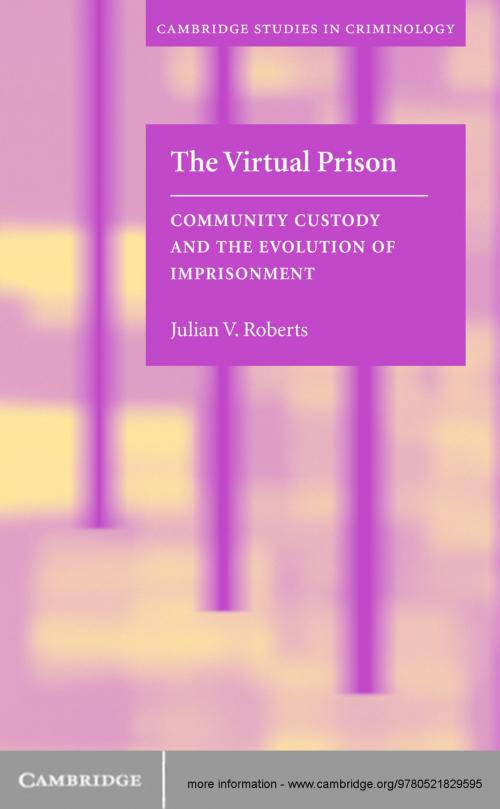The Virtual Prison
Community Custody and the Evolution of Imprisonment
Nonfiction, Social & Cultural Studies, Social Science, Crimes & Criminals, Criminology, Political Science| Author: | Julian V. Roberts | ISBN: | 9781139810067 |
| Publisher: | Cambridge University Press | Publication: | November 18, 2004 |
| Imprint: | Cambridge University Press | Language: | English |
| Author: | Julian V. Roberts |
| ISBN: | 9781139810067 |
| Publisher: | Cambridge University Press |
| Publication: | November 18, 2004 |
| Imprint: | Cambridge University Press |
| Language: | English |
The last twenty-five years have seen dramatic rises in the prison populations of most industrialised nations. Unable to keep up with increased numbers of convicted offenders, governments and criminal justice systems have been seeking new ways to control and punish offenders. One sanction adopted in Canada and some parts of Europe and the US is community custody which attempts to recreate the punitive nature of prison but without incarceration. This book analyses the effectiveness of this approach and explores its implications for offenders and society as a whole. It demonstrates that if properly conceived and administered, community custody can reduce the number of prison admissions and at the same time promote multiple goals of sentencing. So that offenders given community custody orders are punished yet also given the opportunity to change their lives in ways that would be impossible if they were in prison.
The last twenty-five years have seen dramatic rises in the prison populations of most industrialised nations. Unable to keep up with increased numbers of convicted offenders, governments and criminal justice systems have been seeking new ways to control and punish offenders. One sanction adopted in Canada and some parts of Europe and the US is community custody which attempts to recreate the punitive nature of prison but without incarceration. This book analyses the effectiveness of this approach and explores its implications for offenders and society as a whole. It demonstrates that if properly conceived and administered, community custody can reduce the number of prison admissions and at the same time promote multiple goals of sentencing. So that offenders given community custody orders are punished yet also given the opportunity to change their lives in ways that would be impossible if they were in prison.















